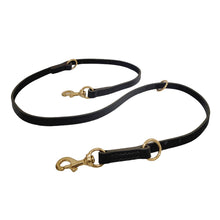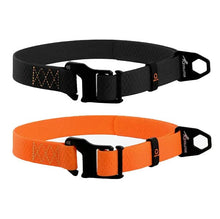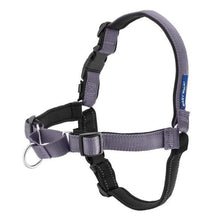Top 13 Tips From Experienced German Shepherd Owners

Are you dreaming of owning a German Shepherd or perhaps you’ve recently added one to your life? There’s no doubt, owning a German shepherd is a privilege. These dogs make wonderful companions but also require a lot of work.
We recently asked experienced German shepherd owners for their best tips and this is what they said:
Puppy train early.
German shepherds are smart and curious dogs but they’re not born knowing what you expect from them. Puppy training should start when you bring them home. It’s easier to begin training a puppy while young than to correct bad habits later. Teaching your puppy will also help them grow up to be a confident, well behaved dog and prevent many problems down the road.
Expect puppy biting and nipping.
A big surprise for many new German shepherd owners is how much their new puppy enjoys puppy biting. As herding dogs, German shepherd puppies are naturally prone to nip. Combine that with their love of play, teething, and exploring the world with their mouths and nose, and you’ve got a playfully nippy puppy on your hands. All German shepherd puppies should be taught not to play bite and redirected to what is appropriate to sink their teeth into. All new owners should learn how to train this skill before bringing their land shark home.
Dog Proof your home.
German shepherds are naturally curious and as puppies, tend to get into anything they can. Puppy and dog proofing your home is important and will help you avoid lots of pain down the road. By dog proofing your home, not only will you be protecting the things you love, you’ll also be setting up your dog for success. Protect your puppy from accidents, potential vet bills, injuries, and worse. Check out how to prepare for a German shepherd puppy here.
Buy a good vacuum.
They don’t call them German shedders for nothing. These double coated dogs shed year-round and blow their coat twice a year. In fact, if dog hair really gets you down, you probably shouldn’t own one. However, the shedding is manageable with continued brushing, vacuuming, and sweeping-just know it will be a constant thing but the work is worth all the love they return.
Plan to brush often.
As mentioned above, German shepherds shed – a lot. You’ll want to invest in a good deshedding rake and plan to brush your dog weekly. The good news is, aside from lots of brushing, they don’t require much more grooming than the occasional bath with non-drying shampoo, ear cleaning, and nail trims.
Give lots of attention.
German shepherds are not ornamental dogs content to hang out in the background. They strongly desire to be part of the family and will develop behavior problems when not given the time and attention they need. They are happiest by the side of those they love and as participating family members.
Provide lots of exercise.
Along with needing lots of attention, they are also athletic and need lots of exercise. Fortunately, you can combine these two activities into play and training time. They love to run, fetch balls, and learn new things. It really doesn’t matter how you meet their need for exercise as long as you can each and every day, rain or shine.
Teach them house manners.
When teaching your German shepherd how you expect them to behave indoors you must be consistent. Boundaries and expectations are important for these dogs to learn but also provide stability, which builds confidence. For example, if you don’t want your dog on the furniture, never let them on the furniture. If you allow your dog to bark when someone is at the door, don’t expect them not bark at the door. It’s up to you what is permissible but consistency is key.
Work their brains as well as their body.
German shepherds are very smart. They are capable of learning many things and get bored easily. A bored German shepherd can get destructive and develop anxious behaviors. With training, attention, interactive games, and tough chew toys, you can meet their need for mental stimulation in a fun, healthy way. If you can’t provide this, these clever dogs will use their brain power to make their own decisions, which is never a good thing.
Don’t skip on socializing.
As herding dogs, German shepherds are naturally protective and can be wary of strangers. They need to be socialized from a young age and exposed to many different situations and people. Doing this will help build their confidence and give you a trustworthy dog that can go anywhere. By exposing them to friends, people at the vet, kids, other dogs, and taking them to new public places, you’ll teach them how to behave toward strangers and new situations rather than having them react in a negative way to new people and places.
Teach them to be calm.
By now, you should have the idea that German shepherds are very busy, active dogs. It’s helpful to teach them that there are times they need to be calm by giving them a safe, restful place to go lay down. This could be a dog bed, a crate, or something like a cot. Whatever it is, it should be a place in your home that you can easily send them to go lay down when you need them safe and out from being underfoot, temporarily.
Feed them healthy food.
German shepherds are notorious for having sensitive skin and stomachs. A good quality, easily digestible diet full of nutrients for healthy skin is very important. They can also benefit from joint and skin supporting supplements such as chondroitin, glucosamine, and omega 3 oils.
Set them up for success.
Sadly, many German shepherds develop behavior problems or find themselves dumped at a shelter because no one took the time to train them. Their need for socialization, attention, and physical and mental exercise cannot be overstated. As working dogs, they will find an outlet for their high energy, if it’s not provided to them. There is nothing more heartbreaking than a German shepherd being failed by their owner.
One of the reasons why so many people love these dogs is because they are so active and smart. They are a joy to train and love learning new things. They are extremely loyal and are fast learners. Some of the most important things you can teach them include:
- Sit
- Stay
- Stand
- No
- Come/recall
- Break, release
- Heel
- Down
- Leave it
- Drop it
- Take it
- Wait
- Move away
- Place
- Off
- Watch me
- Go out, in
- Yes, good dog
We hope you enjoyed these tips and would love to hear what you’d add to the list.
You may also like: 29 Essential Training Commands To Teach Your German Shepherd






















